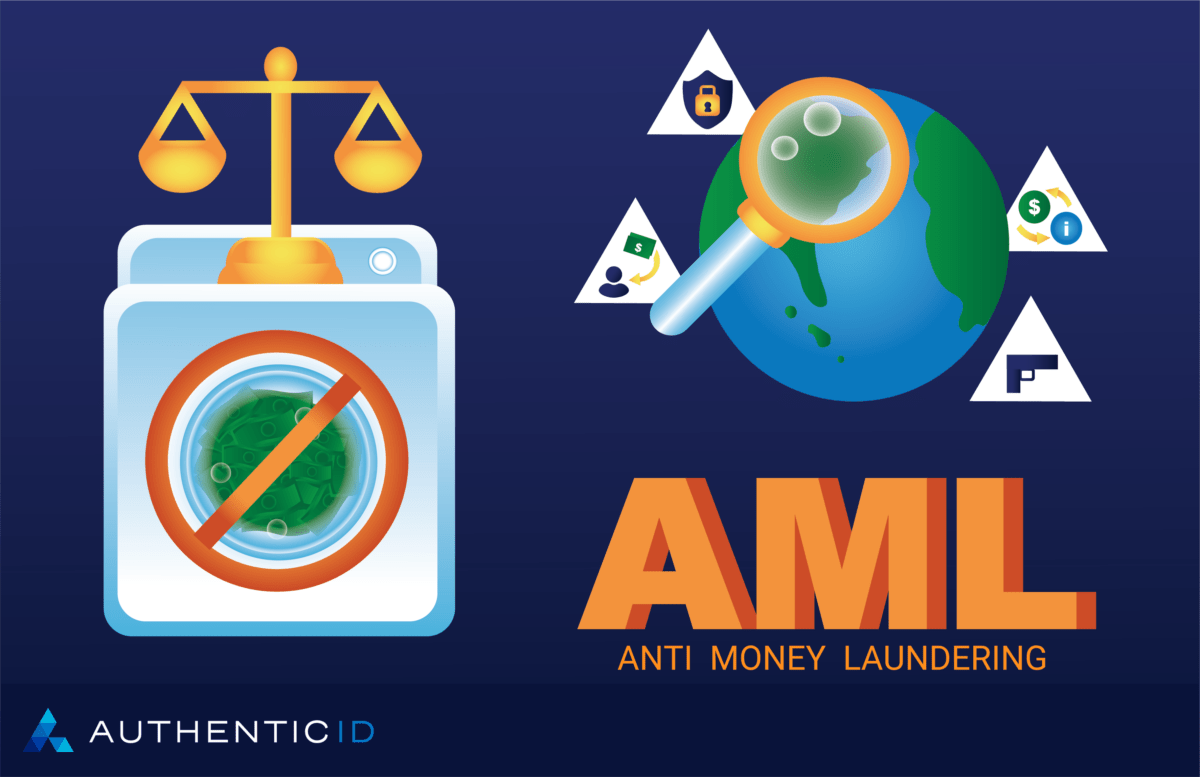Anti-Money Laundering or AML refers to a set of laws, regulations, and procedures that target money laundering. The financial industry must comply with these legal requirements to monitor for and report suspicious activities that may be tied to money laundering, meaning they often must implement sophisticated customer due diligence plans.
What is Anti Money Laundering (AML)?
Anti-Money Laundering (or AML) refers to a set of laws, regulations, and procedures centered on money laundering. The goal is to stop criminals from obtaining income through illegal actions. These programs help financial institutions, money-service businesses, and insurance companies discover suspicious activity related to potentially criminal endeavors such as terrorism financing or money laundering.
The financial industry must comply with these legal requirements to monitor and report suspicious activities that may be tied to money laundering, meaning they often must implement sophisticated customer due diligence plans.There are directives currently in place, such as the Bank Secrecy Act (BSA) in America, that require financial institutions to do their part to detect, prevent, and report money laundering activity.
In order to ensure AML compliance, companies need to deal with financial regulations and comprehend financial legislation imposed at both the domestic and international level. The world’s AML landscape is complex and ever-evolving, so institutions must be proactive about keeping pace with developing rules and regulations in order to ensure appropriate compliance.

Why is AML Important?
Money laundering poses a substantial threat to individuals and institutions and has far-reaching consequences. According to the United Nations, the estimated amount of money laundered globally in one year is 2 to 5% of global GDP, or $800 billion – $2 trillion in current US dollars. This money is used for all sorts of nefarious purposes that impact people, companies, and communities.
Money laundering tends to coincide with criminal activity like smuggling, illegal arm sales, insider trading, embezzlement, bribery, cyber security fraud, and more. It’s also common in organized crime rings that facilitate activities like human or arms trafficking.
AML is closely related to efforts to stop such criminal activity. AML policies are key to the counter-financing of terrorism (CFT), used by financial institutions to combat terrorist financing. AML regulations help organizations to get a handle on both money laundering (source of funds) and terrorism financing (destination of funds). AML tactics can also benefit financial institutions in these ways:
- Noncompliance or negligence in these areas can lead to civil or criminal penalties. These may result in consent orders and other quantifiable fines.
- Companies who focus on compliance are likely to see a reduction of costs related to fines and employee and IT costs. Many companies reserve capital for risk exposure and are able to keep these funds intact.
- AML compliance is good for public perception and public relations. Focusing on these areas helps to protect brand reputation as well as shareholder value.
- The processes necessary for complying with AML allow organizations to monitor customers and report on suspicious activity. This means they have a clearer understanding of customer behavior and transactions, which can benefit the broader business.
Additionally, anti-money laundering policies and procedures set the tone for organizations to reinforce a culture of compliance. Such a culture has indirect benefits based on creating transparent workflows and expectations for individual behavior. Another key benefit is that a positive compliance culture promotes accountability among staff. Employees are more likely to feel invested in their organization when everyone behaves ethically.
Is There a Global Initiative Around AML?
The global AML landscape is diverse and consistently evolving. Financial institutions have an obligation to keep up with the current rules and regulations in their area, and on a broader level. What does that look like?
Globally, there is an effort called the The Financial Action Task Force (FATF), an intergovernmental organization dedicated to combating money laundering and the financing of terrorism. The FATF consists of 36 member states and their jurisdiction spans the world and includes every major financial center. The purpose of the FATF is to establish global standards for AML compliance and monitor their effective implementation. To achieve those goals, the FATF regularly issues guidance and sets standards that must be met in order to comply, including:
- Implementing Know Your Customer (KYC) ID verification measures
- Performing due diligence measures recommended by the FATF
- Maintaining appropriate records for high-risk customers
- Monitoring accounts for suspicious financial activity and reporting such activity to the correct national authorities
- Enforcing effective sanctions against entities that do not comply with FATF regulations
Furthermore, many countries (or economic or political partnerships like the European Union) have enacted and continue to refine laws and regulations that combat money laundering and other counter-terrorism financing. While AML laws and regulations will vary by country, they always require financial institutions to maintain a robust set of policies in order to achieve compliance. These policies should include detailed explanations of the people, processes, and technology a financial institution has in place to prevent the “reintroduction of illicit funds into the financial system”.
As an example, the United States has the Bank Secrecy Act (BSA), which requires that banks create an effective AML compliance program, in addition to establishing customer due diligence systems and programs. Banks should also screen against the Office of Foreign Assets Control (OFAC) economic and trade sanctions, as well as create a suspicious activity monitoring and reporting process. Importantly, in order to comply with the BSA, American banks must employ a risk-based approach to anti-money laundering.
